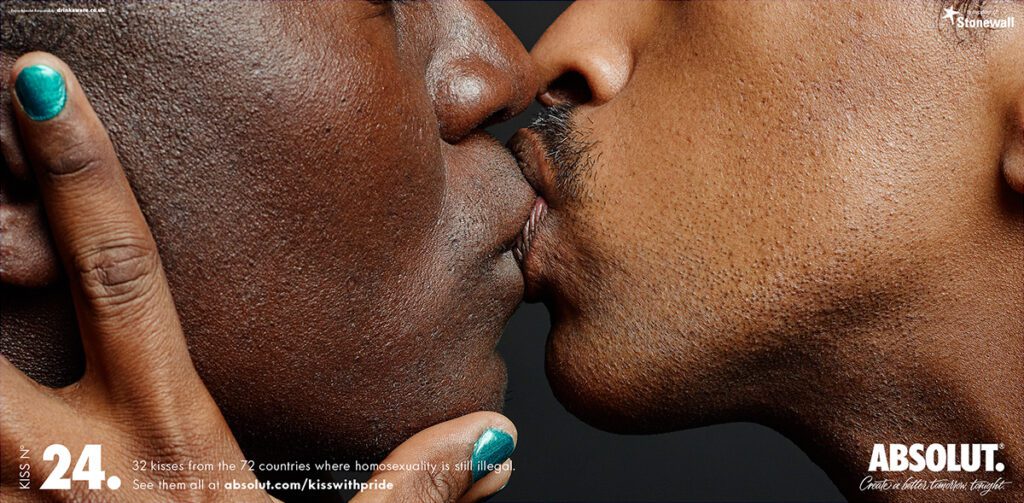What the Rise of Teetotallers Means for British Pub Culture
A national institution is in crisis. We teeter on the precipice of a watershed moment in the UK’s national identity so calamitous, and with such all-encompassing consequences at every level of society and the national consciousness, that it threatens to rift apart the very fabric of our collective psyche and our ideas of what it means to be British.
I am, of course, referring to the grand tradition of binge drinking and British pub culture.
Just in case you’d missed the earth-shattering news that young people are drinking less: young people are drinking less. I’ll preface our conclusions on this by making it clear that I think the marketing world’s persistent obsession with generational demographics is basically the plastic straw in the nostril of the adland turtle. But I concede that once in a while, a catch-all generational insight can be revealing.
IT’S LIKE, COS THEY’RE SO SOCIALLY CONSCIOUS
The persistent trope paints Generation Z (ugh) as variously ‘value-driven’, ‘socially conscious’, into ‘retro’ aesthetics and, basically, smarter, savvier, kinder, healthier and in every conceivable way better than, apparently, any generation that’s gone before them.
In other words, while these young, razor-sharp, hyper-ethical, teetotal do-gooders are swigging their kombucha (in between soup kitchen volunteering shifts and hours developing million-selling apps that somehow or other fight climate change from their bedrooms), we’re all drinking the Kool Aid.
There are doubtless a few kernels of truth in this. But, like everything the Strauss–Howe obsessives declare in their desperate, swivel-eyed pursuit of clicks, it’s laughably reductive.
The idea that 20-year-olds are homogeneously liberal, socially aware and more switched-on than older counterparts is obviously ridiculous. But what the misinterpreted research does indicate are some consistent trends: a generally increased awareness of social issues (notably mental health) and a penchant for the ‘retro’ (read: shell suits and Britpop).
Here’s a picture of some healthy Gen-Z’ers (probably) cheersing juices!
OH. MAYBE THEY ACTUALLY ARE
While some of this research paints teenagers as culturally backward-looking, where the cohort before them displayed an obsession with modernity, it’s probably more just an obvious consequence of youth’s rebellion – eschew the trends that immediately precede you. And backward-looking ideals are always just that – idealistic.
Whenever we revive the ideas and aesthetics of the past, we invariably cherry-pick. ‘Vintage’ festivals embrace the quiffs and leather jackets, leaving out the stereotyped gender roles, keenness on flick-knives and spam-based cuisine. Steampunk embraces clockwork and fun goggles without the typhoid, child labour and general heinousness of Victorian society.
And so, the current ‘retro’ 90s vibe embraces Britpop without the misogynist swagger and obligatory binge-drinking.
While part of this generation’s mentality is probably to do with that cherry-picking, there might also be something to their apparently greater predilection to question the negative norms of previous generations.
And that suggests that they might be shunning not alcohol per se, but rather a particular attitude towards alcohol. Namely, the excessive drinking and pub culture of youth that’s come to be associated with machismo, destruction and destabilisation (just take the briefest of looks at the language of drunkenness in English); all things that the yoot are supposedly increasingly sceptical about.
TEETOTAL OR QUALITY OVER QUANTITY?
I don’t think it’s a coincidence that those of us who grew up during Peak Booze are increasingly shifting our drink habits towards craft at the same time that the next cohort of would-be drinkers are likelier to reject booze altogether and become teetoallers.
But the decline of vertical drinking isn’t necessarily going to equate to a wholesale reduction in alcohol consumption. Instead, the optimist in me wants to believe that we could see a new, considered, healthier approach to alcohol begin to take hold of the UK’s national psyche.
Now, I admit that’s a big leap. But with the drinks marketing industry already behind the idea, some kind of change is inevitable – Diageo, for example, set out its stall at the start of 2018, embracing the mantra of quality over quantity that’s gradually gathered momentum over the year.
WHAT IT’S ALL GOT TO DO WITH BRITISH PUB CULTURE
I don’t think it’s a coincidence that those of us who grew up during Peak Booze are increasingly shifting our drink habits towards craft at the same time that the next cohort of would-be drinkers are likelier to reject booze altogether and become teetoallers.
But the decline of vertical drinking isn’t necessarily going to equate to a wholesale reduction in alcohol consumption. Instead, the optimist in me wants to believe that we could see a new, considered, healthier approach to alcohol begin to take hold of the UK’s national psyche.
Now, I admit that’s a big leap. But with the drinks marketing industry already behind the idea, some kind of change is inevitable – Diageo, for example, set out its stall at the start of 2018, embracing the mantra of quality over quantity that’s gradually gathered momentum over the year.
Of course, to reduce a wholesale change in a nation’s mindset to the role of big industry players, ignoring the other socioeconomic factors at play is oversimplifying it (or bang on the money, depending on where you rate on the conspiracy-theorometer). But there are all kinds of potential consequences to get excited about.
Product, yes. But a new attitude towards drinking means a new attitude not just to the things we drink, but the places we drink them in. That’s where the retro aesthetic comes back in.
The traditional concept of the pub is just an objectively lovely one. It’s the reason country pubs are the go-to happy place of misty-eyed Middle England. Before that starts to sound like a prime bit of retro cherry-picking (lest we forget the UKIP campaign on the subject), the point is this: conditions are right for a revival of a more community-focused type of drinking venue, where the goal isn’t to get as pissed as possible while still being allowed in before leaving in a shower of blue vomit. I’ll save the Orwell tribute for another time, but you get the idea.
Our pubs are still facing an uncertain future, and it’ll still take a raft of measures to secure them. But while it might seem counterintuitive, if not a complete teetotal, but a less booze-minded generation doesn’t have to be a bad thing for British pub culture. It could be a great one.
Hope you enjoyed the article. For help on navigating the challenges in pub marketing, or advertising to a younger teetotal-ish generation, get in touch today.
TEETOTAL OR QUALITY OVER QUANTITY?
I don’t think it’s a coincidence that those of us who grew up during Peak Booze are increasingly shifting our drink habits towards craft at the same time that the next cohort of would-be drinkers are likelier to reject booze altogether and become teetoallers.
But the decline of vertical drinking isn’t necessarily going to equate to a wholesale reduction in alcohol consumption. Instead, the optimist in me wants to believe that we could see a new, considered, healthier approach to alcohol begin to take hold of the UK’s national psyche.
Now, I admit that’s a big leap. But with the drinks marketing industry already behind the idea, some kind of change is inevitable – Diageo, for example, set out its stall at the start of 2018, embracing the mantra of quality over quantity that’s gradually gathered momentum over the year.
WHAT IT’S ALL GOT TO DO WITH BRITISH PUB CULTURE
I don’t think it’s a coincidence that those of us who grew up during Peak Booze are increasingly shifting our drink habits towards craft at the same time that the next cohort of would-be drinkers are likelier to reject booze altogether and become teetoallers.
But the decline of vertical drinking isn’t necessarily going to equate to a wholesale reduction in alcohol consumption. Instead, the optimist in me wants to believe that we could see a new, considered, healthier approach to alcohol begin to take hold of the UK’s national psyche.
Now, I admit that’s a big leap. But with the drinks marketing industry already behind the idea, some kind of change is inevitable – Diageo, for example, set out its stall at the start of 2018, embracing the mantra of quality over quantity that’s gradually gathered momentum over the year.
Of course, to reduce a wholesale change in a nation’s mindset to the role of big industry players, ignoring the other socioeconomic factors at play is oversimplifying it (or bang on the money, depending on where you rate on the conspiracy-theorometer). But there are all kinds of potential consequences to get excited about.
Now, I admit that’s a big leap. But with the drinks marketing industry already behind the idea, some kind of change is inevitable – Diageo, for example, set out its stall at the start of 2018, embracing the mantra of quality over quantity that’s gradually gathered momentum over the year.
Of course, to reduce a wholesale change in a nation’s mindset to the role of big industry players, ignoring the other socioeconomic factors at play is oversimplifying it (or bang on the money, depending on where you rate on the conspiracy-theorometer). But there are all kinds of potential consequences to get excited about.
Product, yes. But a new attitude towards drinking means a new attitude not just to the things we drink, but the places we drink them in. That’s where the retro aesthetic comes back in.
The traditional concept of the pub is just an objectively lovely one. It’s the reason country pubs are the go-to happy place of misty-eyed Middle England. Before that starts to sound like a prime bit of retro cherry-picking (lest we forget the UKIP campaign on the subject), the point is this: conditions are right for a revival of a more community-focused type of drinking venue, where the goal isn’t to get as pissed as possible while still being allowed in before leaving in a shower of blue vomit. I’ll save the Orwell tribute for another time, but you get the idea.
Our pubs are still facing an uncertain future, and it’ll still take a raft of measures to secure them. But while it might seem counterintuitive, if not a complete teetotal, but a less booze-minded generation doesn’t have to be a bad thing for British pub culture. It could be a great one.
Hope you enjoyed the article. For help on navigating the challenges in pub marketing, or advertising to a younger teetotal-ish generation, get in touch today.
Liked this piece? Sign up to our drinks marketing insights newsletter (no more than monthly) or follow YesMore Agency on LinkedIn.
Interested in us working for you? Email Hello@YesMoreCreative.com (both US & UK/EU work). Or if working with us sounds fun (it is) email Jobs@YesMoreCreative.com.



